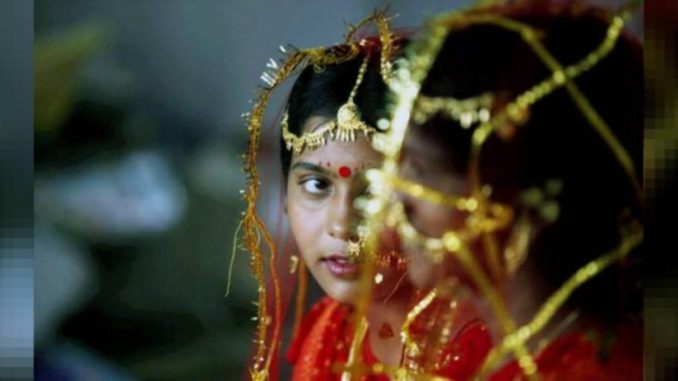
India has taken a progressive step to realise Goal 5 of the Sustainable Development Goals (SDGs). Goal 5 categorically asks nation-states to formulate policies to achieve gender equality. The Centre recently gave a final shape to this goal by ensuring equality in marriage age by raising the marriageable age for women to 21 years.
India had ratified the Convention on the Elimination of All Forms of Discrimination Against Women in 1993. Article 16 of the Convention strictly forbids child marriage and asks governments to identify and enforce the minimum marriage age for women. Since 1998, India has had national legislation exclusively on human rights protections drafted in consonance with international instruments such as the Universal Declaration of Human Rights, 1948. Protection of women against early and child marriage is a protection of their basic rights and this monumental step will lead to changes in related legislative frameworks to provide a comprehensive rights-based framework for the aadhi aabadi.
The regressive perception that marriage provides women with social protections and recognition needs to change. It has been established that child marriage exposes women to early pregnancy, malnutrition, and violence (mental, emotional, and physical). Such marriages have, therefore, been brought under the ambit of the Prohibition of Child Marriage Act, 2006. However, Section 2(a) of the Act declares women under the age of 18 to be children while for men this age is 21. This difference seems to have no justifiable logic. The age of voting can be equal for men and women under the Representation of Peoples Act, and the age to consensually, wilfully, and validly enter into a contract is the same for men and women. What has stopped us from instilling equality in the age requirements to enter into a valid marriage? This difference in criteria was more social than biological. The general arguments based on local value judgments that women should be younger in a marriage union have faded with time. Today, women stand on equal footing to men in all possible spheres of life.
Equality emanates from equal laws and social transformations are both the precursors of laws and a consequence of them. A change in law also fundamentally changes social perceptions in progressive societies.
The equality in marriage age brought about by the Narendra Modi government will add to its many initiatives to promote women’s education. As per the All-India Survey on Higher Education, the enrolment of female students in higher education has increased from 46.2 per cent in 2015-16 to 49 per cent in 2019-20. The overall growth of female student enrolment between 2015-2020 has increased by 18.2 per cent. It is notable that from Ujjwala to Mudra to Pradhan Mantri Jan-Dhan Yojana, the largest section of beneficiaries of government schemes has been the women. For the first time in Indian politics, we are witnessing remarkable levels of representation of women at crucial decision-making positions from the Union Council of Ministers to party structures. Women’s empowerment will get a further fillip with equality in marriage age.
The institution of marriage in India is one of the pillars that hold up the customs and norms of society. Several arguments have been raised on why shouldn’t the government make the existing legislation on the prohibition of the Child Marriage Act more stringent or make such marriages void ab initio in all cases. But we often tend to forget about equal rights for women in terms of their age of marriage. Presently a child marriage is voidable and the law gives the parties two years from the date of solemnisation to file a petition to nullify it. If men can nullify such a marriage till the age of 23, why should this age be just 20 years for women?
Sometimes, objective equality is the need of the hour. Any justification — biological, social, or data and research-based — cannot justify the inequality in age between men and women to enter into a valid marriage. India decided in 1954 with the Special Marriage Act that age must be one of the basic requisites of a valid marriage. The only flaw was not having equality in this regard. That is being corrected. The NITI Aayog task force constituted under the leadership of the Prime Minister has done a commendable job in proposing such a move to empower India’s daughters and sisters.
Source: The Indian Express

Leave a Reply